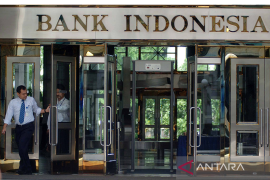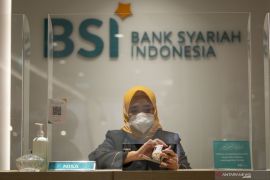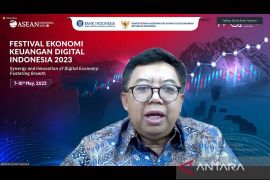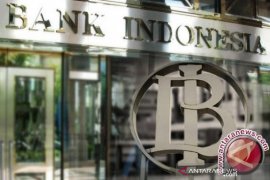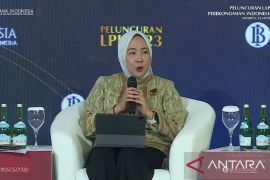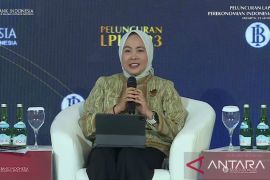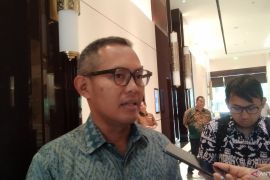"We call on all financial institutions to establish coordination in line with the efforts to eradicate drug abuse, while we conduct further studies centered around preventing various forms of drug transactions," Bank of Indonesia Governor Agus Martowardojo stated after the signing of a memorandum of understanding with the National Drug Agency in Jakarta, Monday.
As an initial step, the bank will require supporting industries, including banks and other financial service institutions, to play a more active role in reminding the public to not use illegal drugs.
Martowardojo noted that financial and payment system companies need to implement the "Know Your Customer" principle, through which institutions can mitigate and protect payment systems from illegal drug transactions.
"We urge the establishments to place warnings on their ATM machines, which will remind the users to not conduct transactions for illegal drugs. We will also supervise money changers to ensure that they too are implementing the Know Your Customer principle, as drug abuse is a major crime," he reiterated.
The banks governor affirmed that his office will intensify surveillance operations internally to cover all employees and institutions under the Central Bank to avoid drug abuse in the establishment.
"This is the countrys priority effort, which is in line with the presidents stance that drug abuse is an extraordinary crime. Through this memorandum of understanding, we will hold discussions with the Drug Agency on eradication and prevention measures," he remarked.
The National Drug Agencys Chief Commissioner Budi Waseso lauded the Central Banks support in facing drug threats in Indonesia.
"The banks role, as the supervisor of payment systems, is imperative, considering the high number of drug transactions carried out through banking systems," he stated.
The memorandum contains four forms of cooperation, one of them being the dissemination of information and campaigns to prevent the misuse and illegal circulation of drugs in the premises of the Bank of Indonesia.
The second focuses on conducting drug tests on the employees of the Central Bank.
The third form of cooperation encompasses enhancing the competency and capacity of human resources in order to prevent the misuse and circulation of illegal drugs and its precursors, along with the dissemination of information regarding the Central Bank through training programs conducted by each establishment.
Lastly, it is the Bank of Indonesias role to function as an advocate for the anti-drugs movement. The banks cooperation with the National Drug Agency is hoped to contribute significantly towards handling the threat of illegal drugs in the country.(*)
Editor: Heru Purwanto
Copyright © ANTARA 2016
